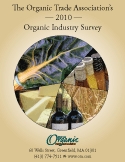The following information offers quite a bit of economic hope for Mendocino & Lake Counties organic producers and really supports the idea of having a local meat harvest and processing plant that is certified organic.
WASHINGTON, April 6, 2011 /PRNewswire-USNewswire/ -- Organic farming is an important part of the U.S. agricultural landscape, Secretary of Agriculture Tom Vilsack today told participants at the Organic Trade Association's (OTA's) 2011 Policy Conference and Hill Visit Days here in D.C.
"Organic producers are very entrepreneurial in nature. They're in a position to create value-added products that provide a wealth of opportunities in rural America," Secretary Vilsack said.

His comments were made before the more than 150 persons taking part in the policy conference. Organized by OTA and supported by the Organic Farming Research Foundation (OFRF) under the theme "Advance Organic Together," the conference is focusing on the value of organic agriculture in providing jobs, supporting rural livelihoods, and advancing an entrepreneurial spirit.
OTA released data onsite from OTA's 2011 Organic Industry Survey that reveal that the industry has grown from $3.6 billion in 1997 to $29 billion in 2010. Despite the nation's worst economic downturn in 80 years, the organic industry has come out of the recession hiring employees, adding farms, and increasing revenue. For further information about the survey, visit www.ota.com.
Among the findings from OTA's latest industry survey:
- The organic sector grew by 8 percent in 2010, dramatically outpacing the food industry as a whole which grew at less than 1 percent in 2010.
- The organic industry supports 14,540 organic farms and ranches across the country. A total of 4.1 million acres of land are currently in organic management, and there are organic farms in all 50 states.
- Since 78 percent of organic farms report planning to maintain or increase organic production levels over the next five years, the organic sector will continue to play a contributing role in revitalizing America's rural economy through diversity in agriculture.
- Forty percent of organic operations added jobs in 2010. In addition, 96 percent of organic operations are planning to maintain or increase employment levels in 2011, and 46 percent of them are planning to increase employment levels three times the rate of businesses as whole.
"The USDA is creating financial assistance for organic because we recognize organic as a part of the strategy to rebuild rural America," said Secretary Vilsack. "A lot of folks in rural America need help. One very good strategy is organic."
Organic agriculture and the organic industry are fueling America's growth. U.S. Census data shows that on average, U.S. organic farms have higher sales, higher production expenses, and higher operating profit than the average for all U.S. farms, thus creating real opportunities for rural economic livelihoods. In fact, organic farms were shown to have an average operating profit nearly double that for all farms ($45,697 for organic versus $25,448 for all farms).
The Organic Trade Association (OTA) is the membership-based business association for organic agriculture and products in North America. OTA is the leading voice for the organic trade in the United States, representing over 6,500 organic businesses across 49 states. Its members include growers, shippers, processors, certifiers, farmers' associations, distributors, importers, exporters, consultants, retailers and others. OTA's Board of Directors is democratically elected by its members. OTA's mission is to promote and protect the growth of organic trade to benefit the environment, farmers, the public and the economy.
SOURCE Organic Trade Association